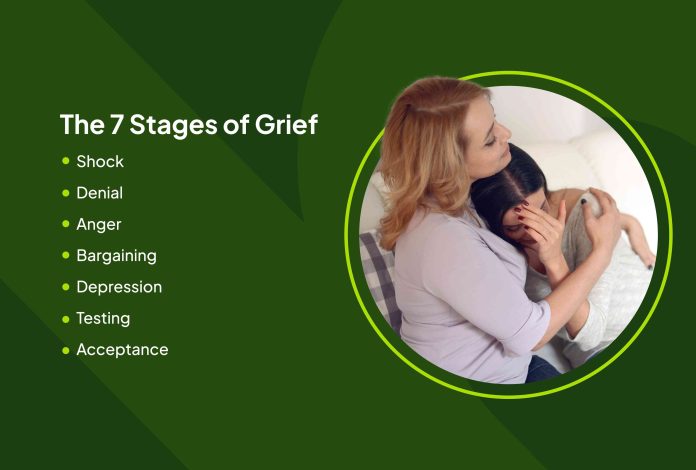Losing a loved one is an emotional and challenging experience. It is a time filled with grief, but also with responsibilities. From legal formalities to cultural and personal obligations, understanding how to deal with the deceased is essential to ensure a smooth transition during these trying times. This article outlines the process, significance, and common concerns related to handling matters involving the deceased.
1. Immediate Steps to Take After a Death
When someone is deceased, the immediate step is to confirm and pronounce the death. If the death occurs in a hospital or care facility, the medical staff will handle the declaration. However, if it occurs at home or in a public place, emergency services should be contacted to pronounce the death officially.
Once confirmed, notify close family members and friends. It’s advisable to reach out to the deceased’s primary care physician and, depending on circumstances, the police or a coroner may also need to be informed.
2. Legal Requirements: Death Certificates and Notifications
A crucial step in dealing with a deceased individual is obtaining the death certificate. This document serves as proof of death and is required for a wide range of legal purposes, such as settling the estate, closing accounts, and claiming insurance benefits. The attending physician, coroner, or medical examiner usually issues this certificate, and multiple copies should be requested.
Afterward, it’s important to notify various institutions about the deceased’s passing. This includes the social security office, banks, credit card companies, and insurance providers. Employers or any organization the deceased was affiliated with should also be informed.
3. Arranging a Funeral or Memorial Service
Organizing a funeral or memorial service is a significant way to honor and remember the deceased. It’s essential to respect any wishes they may have expressed regarding their funeral. Traditional services often include a religious ceremony, a eulogy, and burial or cremation. In contrast, modern or personalized services may involve storytelling, visual displays, or unique tributes to the deceased’s life. Also, a thoughtful service often extends beyond the ceremony itself, as families also consider lasting ways to preserve the memory of their loved one. For instance, trusted providers like Tegeler Monument can provide handcrafted memorials, including granite and bronze markers, mausoleums, and personalized engraving, helping families create tributes that can reflect both tradition and individuality.
4. Managing the Deceased’s Estate
The deceased’s estate encompasses their assets, including property, bank accounts, investments, and personal belongings. If the deceased left a will, it will typically name an executor responsible for managing and distributing these assets. The executor’s role is to ensure that the deceased’s wishes are followed and that all legal procedures are met.
If no will exists, the court will appoint an administrator to handle the estate. In this case, the estate is distributed according to local laws of intestacy, which vary based on the deceased’s place of residence.
5. Handling Financial Matters and Debt
A common concern for families of the deceased is managing outstanding debts. Generally, the deceased’s estate is responsible for paying off these debts. Family members are not personally liable unless they co-signed on a loan or were joint account holders. It’s crucial to inform creditors of the deceased’s passing and provide them with a copy of the death certificate.
6. Dealing with Digital Legacies
In today’s digital age, deceased individuals often leave behind online accounts and digital assets. Social media profiles, email accounts, and cloud storage may contain sensitive information or cherished memories. Managing these digital legacies is an increasingly important aspect of dealing with the deceased.
Some platforms have policies in place to memorialize or close accounts. It is advisable to review the deceased’s digital records, especially if they have left any instructions regarding their online presence.
7. Emotional and Psychological Support for the Bereaved
Losing a loved one is an emotional experience, and everyone grieves differently. It’s essential to seek support from friends, family, or professional counselors if necessary. Grieving is a natural part of life, and there’s no one-size-fits-all approach. Memorial services, grief support groups, and speaking openly about the deceased can all be helpful steps in the healing process.
8. Respecting Cultural and Religious Customs
When dealing with a deceased individual, respecting their cultural and religious customs is a significant consideration. Different traditions may dictate the process for preparing the body, holding services, and performing final rites. It’s vital to communicate with family members to ensure these customs are honored.
Conclusion
Dealing with the deceased involves a blend of emotional, legal, and logistical challenges. From confirming the death and notifying relevant parties to handling finances and honoring their memory, there are numerous aspects to address. Understanding these steps and taking the time to grieve are both crucial for navigating this difficult period.
In times of loss, seeking support from professionals—whether legal advisors, funeral directors, or grief counselors—can alleviate some of the burdens. Ultimately, dealing with the deceased is about balancing responsibilities with the need for emotional healing.







